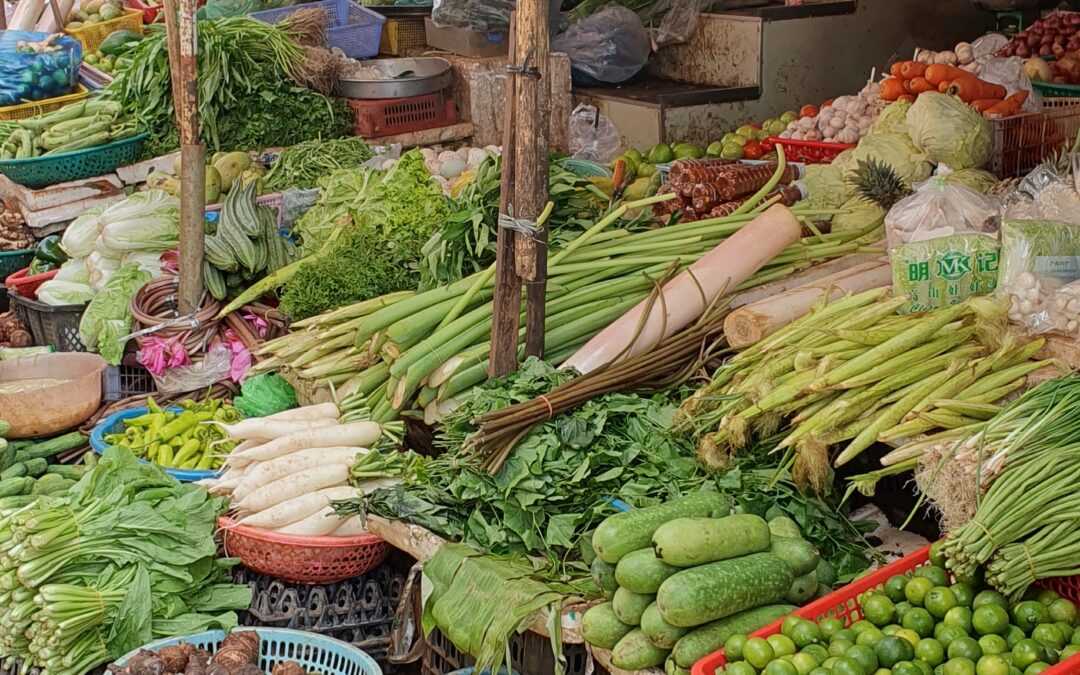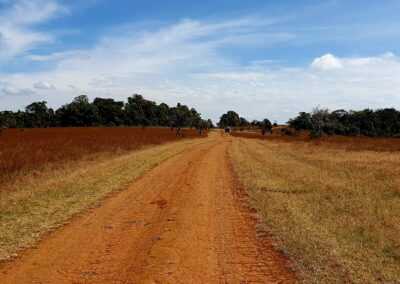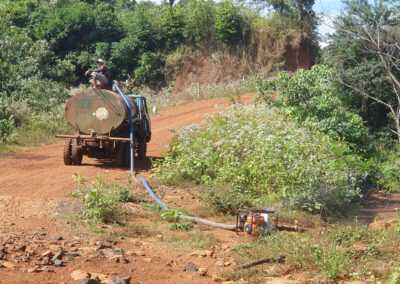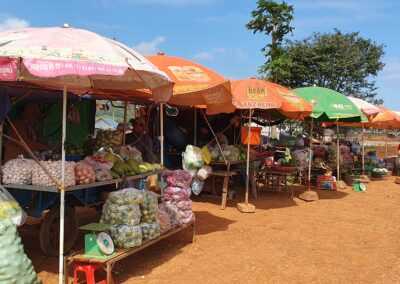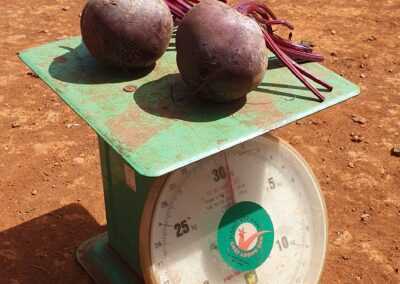
Cambodia has been part of the Future Food Together Initiative since 2022. We are working with key value chain actors to transform agri-food systems with a holistic approach. After kicking-off the project, three studies were conducted on analyzing the current status of the know-how and needs of value chain actors regarding sustainable consumption and production. Following will be an overview on these three studies.
Understanding Consumer Perceptions on Food Choices and Climate Change
The link between what we consume and the implications for climate change and sustainable development cannot be overstated. Consumers have significant power in determining through their demand the supply of various types of food. Consumer demand thus has an impact on factors such as greenhouse gas emissions, deforestation, and land degradation. The production, transportation, and processing of food also contribute significantly to greenhouse gas emissions and environmental concerns.
The first study thus aimed to delve into consumer behaviors and perceptions regarding food consumption and environmental impact. The study set out to achieve three main objectives:
- Understanding general grocery shopping behavior: How do consumers behave when it comes to grocery shopping, with a particular focus on sustainable options?
- Assessing knowledge and perceptions: Exploring the current level of awareness and perceptions among consumers regarding sustainable consumption and production to shed a light on the existing mindset concerning climate change and environmental degradation.
- Identifying triggers for behavioral change: Pinpoint ways and mechanisms that could potentially induce behavioral change among consumers, encouraging them to opt for more sustainable products.
Utilizing the Knowledge, Attitude, and Practices survey model, a consultancy conducted surveys among 360 respondents, including university students, employees, and self-employed individuals in Phnom Penh. Additionally, interviews were conducted with key informants from various businesses, including restaurant chains, food retailers, and food delivery services.
Key Findings
- Knowledge of sustainable consumption: While consumers demonstrated a reasonable understanding of the concept of sustainable consumption, awareness regarding sustainable products was relatively low.
- Information channels: Social media emerged as the primary source of information, in particular Facebook and Instagram. However, there was also a reliance on ‘traditional’ channels of information like schools and television.
- Attitudes towards sustainable practices: Consumers expressed a willingness to embrace sustainable alternatives, including locally produced, minimally packaged, and natural products.
- Challenges and opportunities: While there is a growing concern about environmental issues, certain barriers, such as price disparities and limited availability hinder consumers from making sustainable choices.
Among the people surveyed, as an example, 37% had a good understanding of the term ‘sustainability’. Over the span of the project, we aim to make significant efforts to increase consumer awareness.
Among the people surveyed, as an examples, 37% have had an understanding of the term sustainability. Over the span of the project, we aim to make a significant shift in that regard, increasing consumer awareness.
- Understanding of the term sustainability 37%
Recommendations
To bridge the gap between awareness and action, the study proposes several recommendations:
- Education and awareness: Efforts should be made to educate consumers about sustainable products and their environmental impact through various channels, including social media, schools, and workplaces.
- Price and accessibility: Measures to reduce price differences and improve the accessibility of sustainable products could incentivize consumers to make eco-friendly choices.
- Policy support: Regulatory interventions, such as labeling standards and incentives for sustainable practices can play a crucial role in promoting sustainable consumption.
- Collaboration and engagement: Stakeholders across sectors should collaborate to address challenges and promote sustainable practices effectively.
Understanding consumer perceptions and behavior regarding food choices is essential for fostering a more sustainable future. By addressing knowledge gaps, overcoming barriers, and seeking collaboration, we can empower consumers to make informed decisions that benefit both their well-being and the planet.
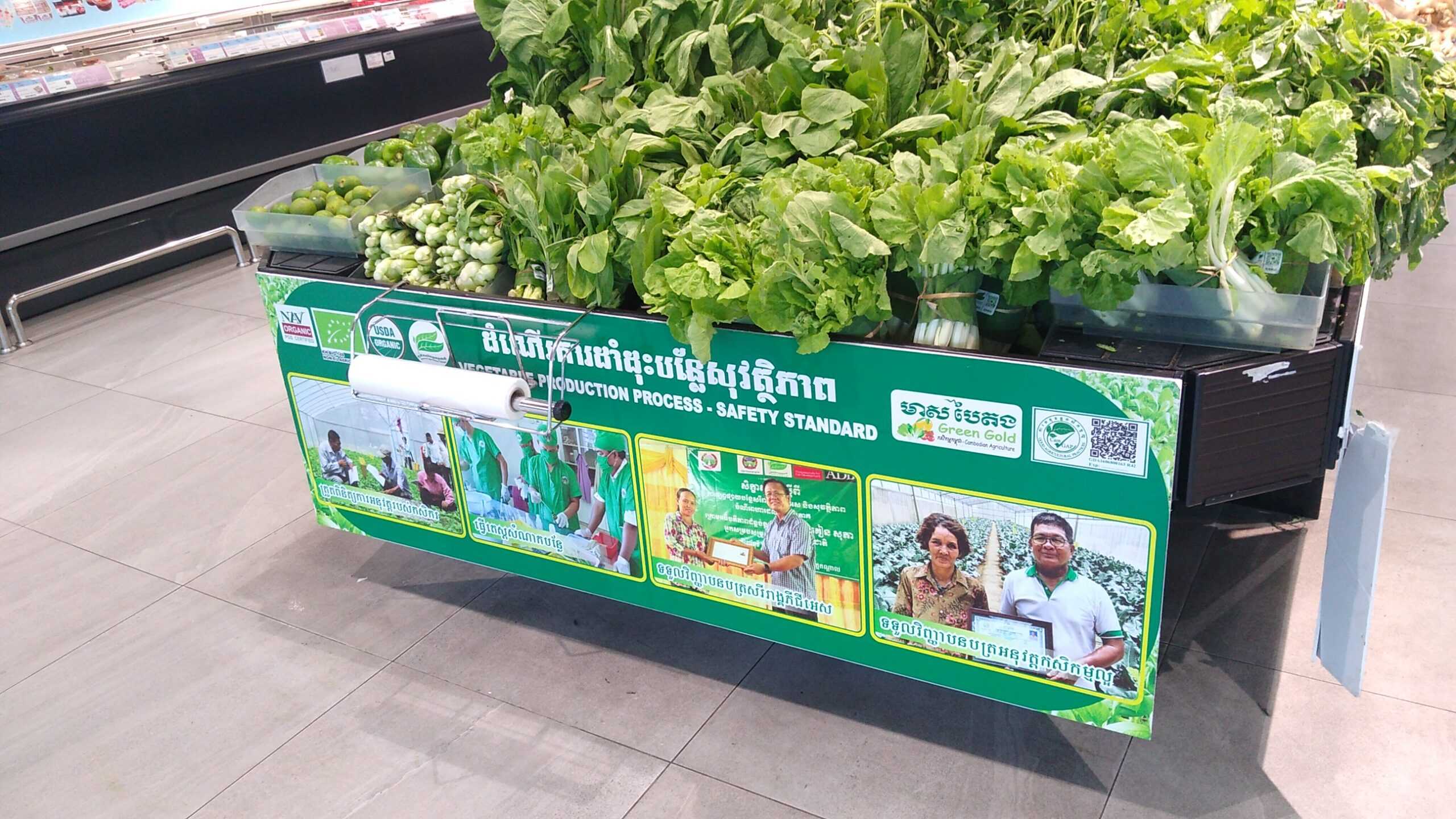
Certified vegetables in large supermarket in Phnom Penh © WWF-Cambodia
Exploring Sustainable Practices in Cambodia’s Food Value Chain
Understanding the intricacies of Cambodia’s food supply chain is essential for fostering sustainable development in the agricultural sector. In food supply chains, each step in the process plays a crucial role in shaping economic opportunities and environmental impact. In light of this, key stakeholders’ interest in adopting sustainable consumption and production principles and integrating them into their business practices was surveyed. The study sought to assess the structure of vegetable and wild honey value chains, identify key actors, evaluate procurement mechanisms and market requirements, examine waste management practices, and gauge the interest in integrating SCP principles.
Survey insights: navigating the supply chain
The survey engaged 168 respondents across various sectors, including provincial departments, farmers, distributors, retailers, and processors in Mondulkiri province, Phnom Penh, and Kandal province. The findings shed light on critical aspects of the vegetable and wild honey supply chains, as well as waste management practices.
In Mondulkiri province, retailers predominantly rely on local vegetable products, while urban areas like Phnom Penh source from centralized markets. However, challenges such as price fluctuations and irregular supply volumes persist due to the absence of formalized contracts between retailers and suppliers. Waste management practices also vary, with limited recycling initiatives and a heavy reliance on traditional disposal methods.
In the wild honey market, traditional practices intersect with modern commerce as harvesters navigate their products through collectors, cooperatives, and private companies. Despite efforts by government agencies and NGOs to promote sustainable practices, challenges like inconsistent product quality are common.
Impressions from the landscape and local markets in Mondulkiri. Dry season comes along with extreme heat and dryness. © WWF-Cambodia
Recommendations
- Promote agricultural technologies/ techniques to improve production and local resilience, especially during the dry season.
- Foster fair contract farming agreements to mitigate price fluctuations.
- Convert vegetable production in Mondulkiri province to meet Global Good Agricultural Practices and local organic certification standards.
- Strengthen agricultural cooperatives.
- Establish honey processing facilities in Mondulkiri province to add value to the local economy.
- Conduct awareness sessions on the environmental impact of food and plastic waste.
- Promote waste recycling initiatives across the supply chain to minimize environmental harm.
By integrating SCP principles into business governance frameworks and fostering collaboration among stakeholders, we can create a food value chain that not only supports livelihoods but also preserves the environment for future generations.
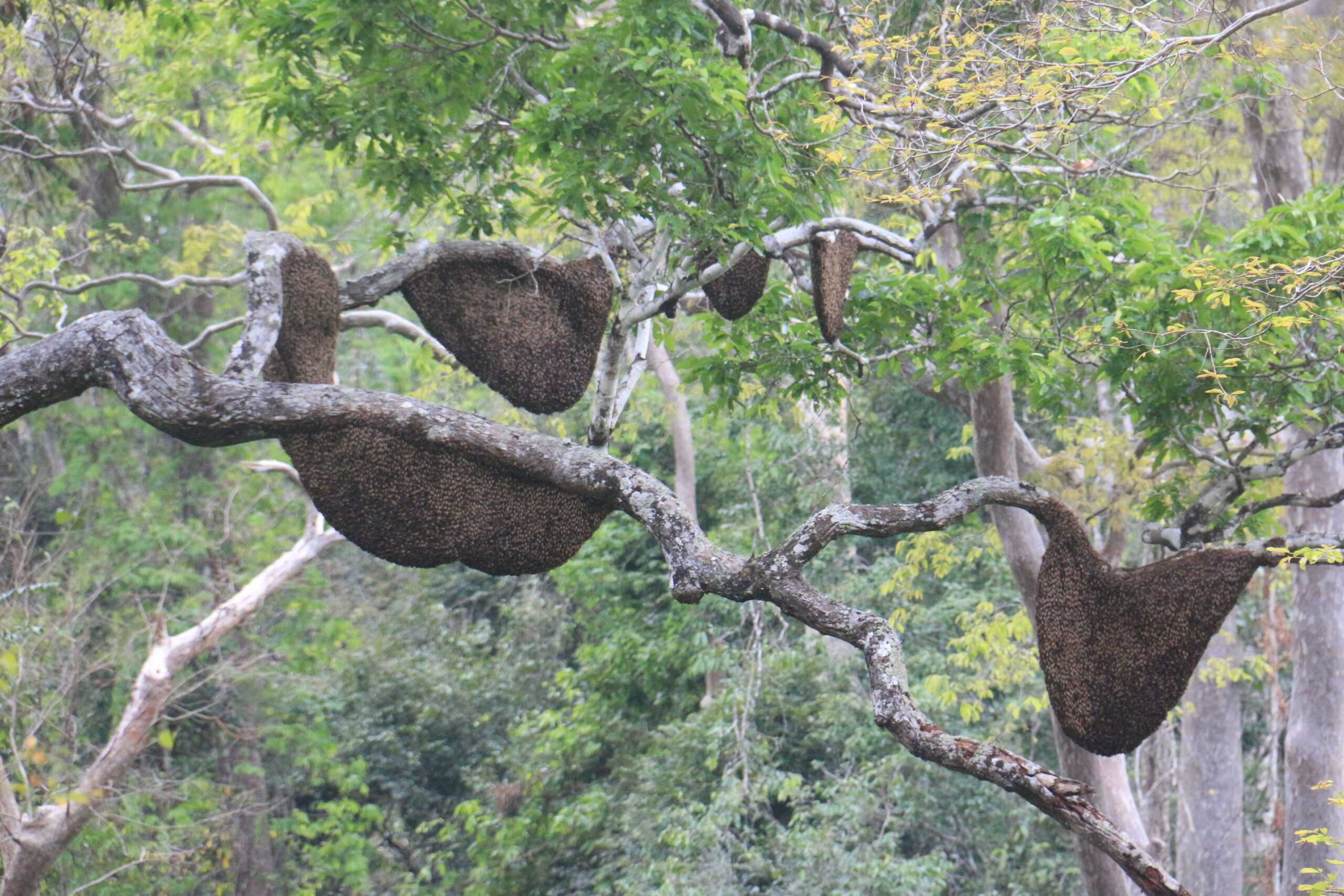
Beehives in Mondulkiri province. WWF has been supporting the registration process for the Protected Geographical Indication of wild honey in the region. © WWF-Cambodia
Unveiling Sustainable Agricultural Practices in Mondulkiri Province
Lastly, a study focusing on sustainable agricultural production systems was carried out, seeking to understand the agricultural techniques and sustainable practices employed by community members and producer groups in Mondulkiri province. Utilizing a mix of qualitative and quantitative methods, the study engaged 198 participants from various stakeholder groups, including farmers, members of agricultural cooperatives, food retailers, and officials. Interviews were conducted across different districts in Mondulkiri province.
Key Findings
Among the agricultural products surveyed, vegetable farming emerged as a primary focus for stakeholders, while avocado and cacao farming came along with various challenges in accessing markets and technical support. To ensure the safety of agricultural products, promotion of sustainable agricultural standards, especially Cam GAP was advocated, despite challenges such as perceived costs and time constraints associated with obtaining certificates.
Wild honey collectors demonstrated expertise in sustainable practices but faced challenges in gaining trust from buyers and securing direct sales within the community.
Recommendations and way forward
Recommendations proposed to WWF Cambodia included promoting women’s participation, establishing contract farming for avocados, and enhancing support for cacao plantations. Other suggestions encompassed promoting the benefits of certification, facilitating direct purchase from farmers, and strengthening collaboration with relevant stakeholders for sustainable production and consumption.
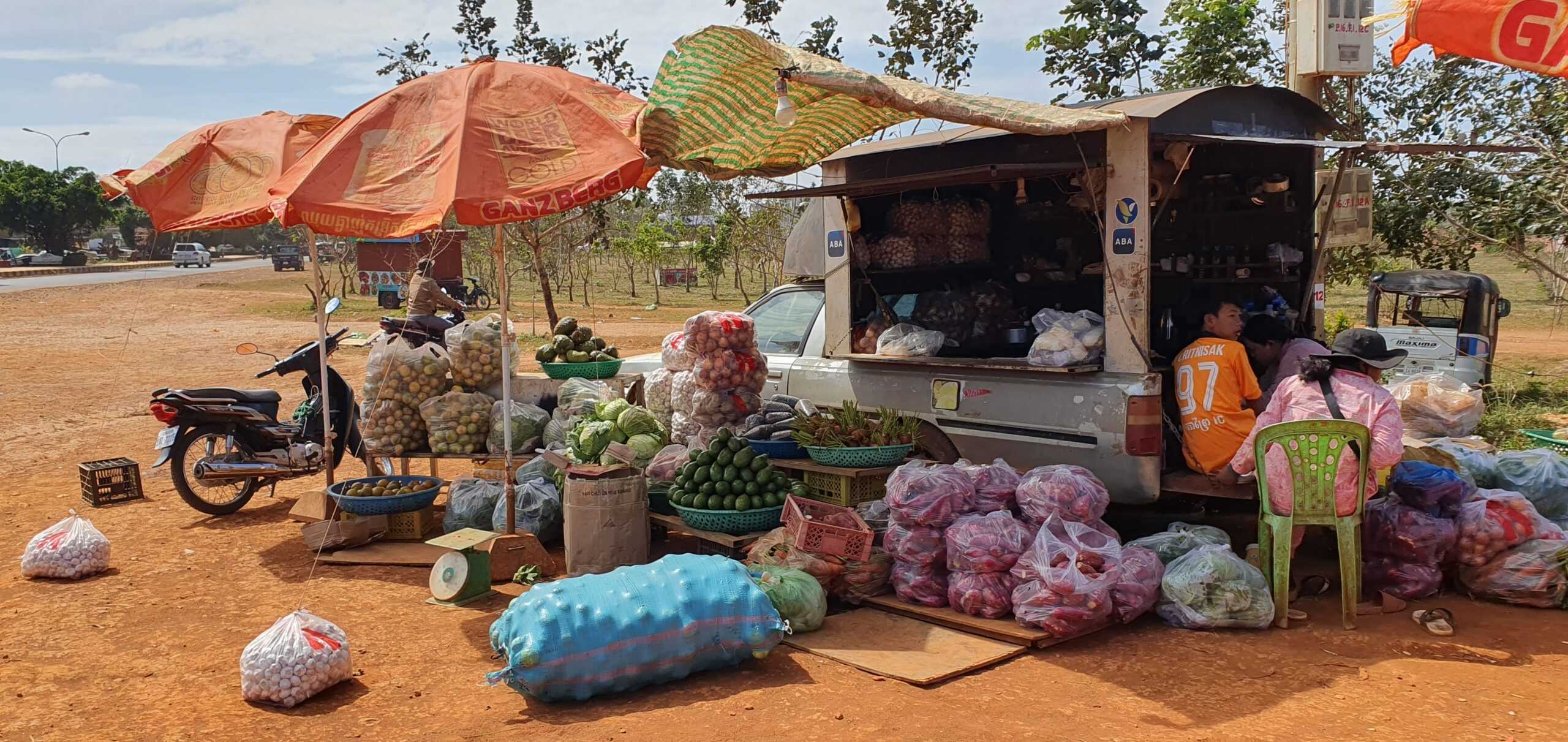
Local vegetable stall in Sen Monorom, Mondulkiri © WWF-Cambodia
Find out more about our work in Cambodia here:

